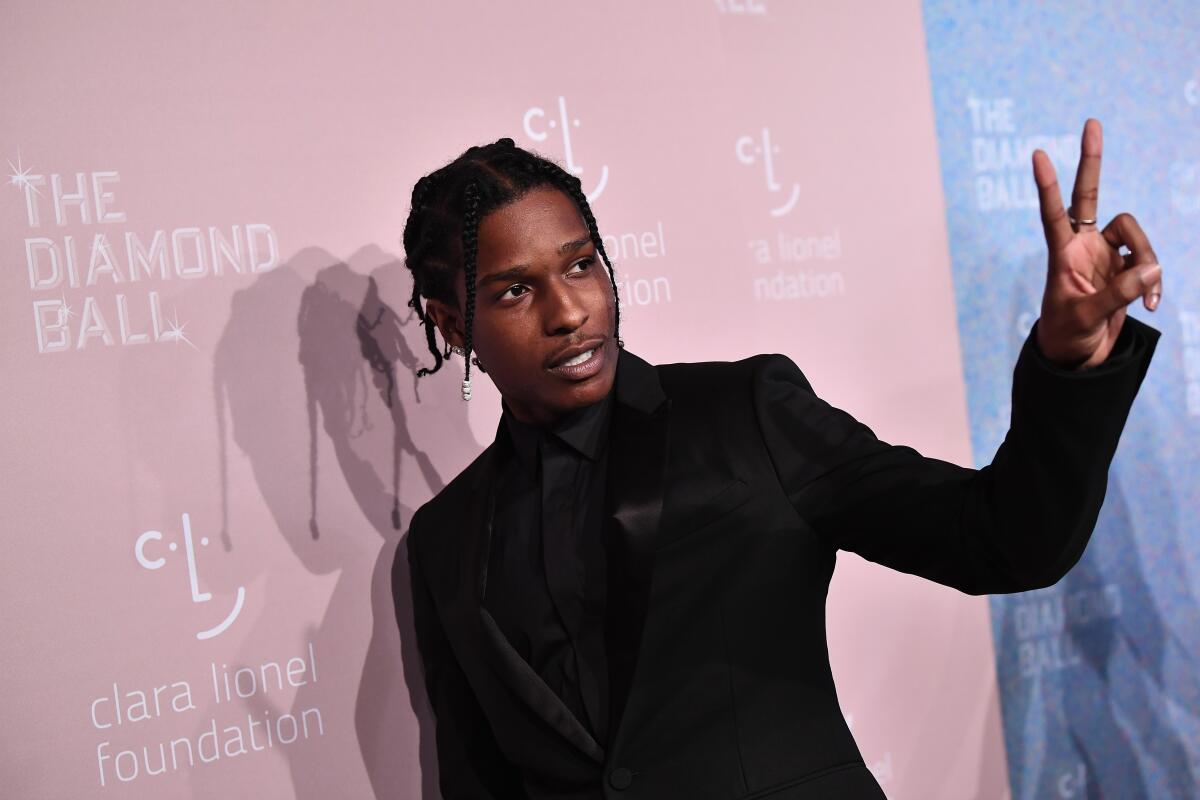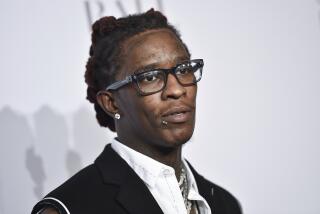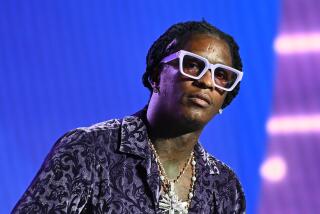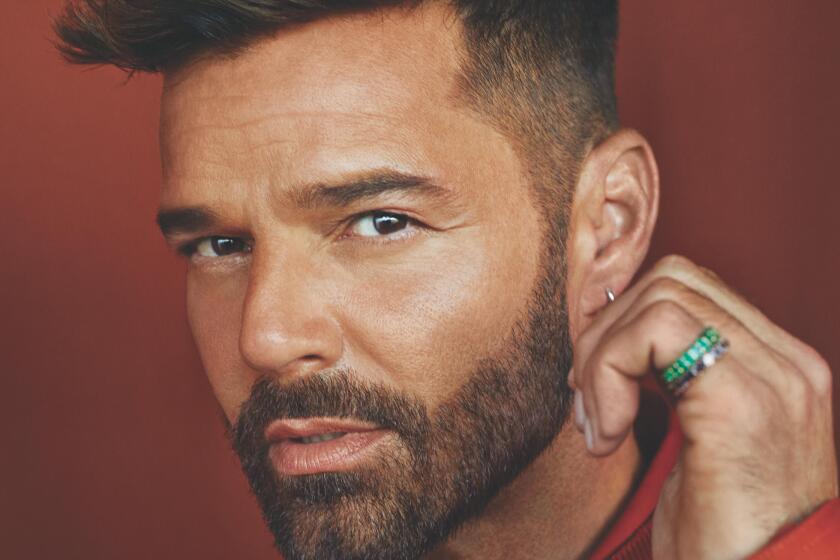In Sweden, ASAP Rocky, and a country’s identity, stand trial

A brawl caught on Instagram, with foreign policy implications. Federal hostage negotiators sent to monitor courtrooms abroad. Twitter interventions from the president and lobbying efforts from Kanye West.
The trial of ASAP Rocky in Sweden feels like “Straight Outta Compton” meets “Veep.”
The case has transfixed both the Swedish public and American hip-hop fans ever since Rocky, born Rakim Mayers, was arrested last month on assault charges stemming from an altercation in Stockholm between him and two companions and Mustafa Jafari, a 19-year-old immigrant from Afghanistan. On Friday, Rocky, 30, was released from jail and returned to the U.S., pending a final verdict expected in two weeks.
But underneath the celebrity and American political entanglements, Rocky’s unusual case complicates debates already roiling in Swedish society. Sweden, known for its generous welfare state and status as a peaceful haven for recent migrants from the Middle East and North Africa, is again debating how best to integrate and support them. Right-wing populists have seized on some recent crimes in immigrant-heavy neighborhoods to try and thwart that mission.
Rocky’s trial has scrambled typical left-right alliances, and has been a major story in Swedish media for weeks. In left-leaning Sweden, many have sympathy for migrants but also see Rocky as a victim of circumstance. Fear of crime has stirred skepticism on the right about Swedish policing and immigration — along with pushback from the left to avoid such stereotypes. Meanwhile, a far-right U.S. president, known for racist and xenophobic statements, tried to force a wealthy European country to release a black hip-hop artist from jail. Most Swedes loathe Trump’s interest in the case and want justice to run its normal course.
“Left-wing Swedes are really caught here,” said Dag Blanck, professor of North American studies at Uppsala University in Sweden. “Swedes are sympathetic towards the cause of African Americans in the U.S., and Sweden sees itself as a champion of civil rights. But this was an African American artist charged with assault, and the person assaulted was a refugee, another marginalized person subjected to discrimination. That’s a complication.”
‘We don’t want any trouble’
ASAP Rocky surely did not expect to become a flashpoint for arguments around Sweden’s crime and immigration policies.
The Harlem-based rapper, co-founder of the larger ASAP collective, has scored two No. 1 Billboard 200 albums and smash singles like “F- Problems” with Drake, 2 Chainz and Kendrick Lamar. Rocky was on tour in Europe at the time of the incident, which occurred outside of a Stockholm restaurant as Rocky’s team tried to download an app to rent some nearby scooters.
Rocky testified that Jafari approached the group asking if they’d seen a friend of his, and after being told to leave them alone, Rocky’s bodyguard intervened and a scuffle ensued. Prosecutors alleged that Rocky and his companions beat and kicked Jafari while he was on the ground, possibly using a bottle as a weapon.
Rocky and his two associates, Bladimir Emilio Corniel and David Tyrone Rispers, pleaded not guilty to assault charges and testified in Stockholm court that they did all they could to de-escalate the situation before it turned violent. Swedish prosecutors had asked for a six-month sentence if found guilty.
“Me and my crew told them that, ‘Listen, don’t go where we are going. Go the other way, we don’t want any trouble,’” Rocky said in court, according to wire reports, adding that he “assumed that these guys were under the influence of some kind of drug.”
“We’re in a foreign country, we’re approached by two strangers with aggressive behavior,” he said. “I don’t know what to expect when being attacked by strangers, that’s why I have security.”
Swedish prosecutors, however, alleged that Rocky and his companions beat and kicked Jafari after he confronted them about a pair of headphones broken earlier in an argument.
“When [the bodyguard] pushed me, I was both offended and surprised,” Jafari said in court, in response to questioning. “Four or five people afraid of me, who’s not even half of their body size?”
Almost immediately after the arrest, musicians and celebrities including Justin Bieber, Migos and Sean “Diddy” Combs took to the internet under the mantle of #FreeRocky. President Trump’s unexpected involvement was inspired by his unlikely friend and ally, rapper Kanye West. (One of Rocky’s first stops post-release was West’s Sunday Service concert, and he thanked Kanye for his help).
President Trump tweeted a punning reaction to the news of Rocky’s release: “A$AP Rocky released from prison and on his way home to the United States from Sweden. It was a Rocky Week, get home ASAP A$AP!” Rocky, for his part, wrote “I CANT BEGIN TO DESCRIBE HOW GRATEFUL I AM FOR ALL OF YOU THIS HAS BEEN A VERY DIFFICULT AND HUMBLING EXPERIENCE.”
Race, immigration and crime. Sound familiar?
Beyond the celebrity angle, the case would otherwise seem to be an ordinary incident of a street confrontation gone south. But the randomness of the crime (and Jafari’s background) have been portrayed by Sweden’s far-right Sweden Democrats party and even more centrist parties as examples of escalating tensions.
While crime rates in Sweden are still dramatically lower than in the U.S. (its annual homicide rate is about one-fifth of ours), high-profile incidents have raised fears in the extremely peaceful country. A spate of grenade attacks largely blamed on weapons smuggled from nearby Baltic countries has law enforcement on edge, as have several youth gang incidents.
“Crime in general is not on the rise here,” said Jerzy Sarnecki, a professor at Stockholm University’s department of criminology. “One acute problem is the rise of gang shootings in this country, which we’ve never had before. Hard-right populists create a picture of the dangers of immigration, and that’s just not correct according to the figures.”
Race and country of origin certainly play a factor in how these issues are debated in Sweden. Sweden’s government has taken pains to avoid implications that race or migrant status has any causal relationship with crime. In 2017, Prime Minister Stefan Löfven stopped updating statistics of the country of origin of criminals, and has been outspoken about advocating for better integration programs and the virtues of diversity. But even the center-left Social Democrats have announced plans to hire 10,000 new police officers and increase sentences for violent crimes.
“ASAP comes from an American context where African Americans are subjected to potential racist violence,” Blanck said. “In the trial, he came across as polite and explained these things. It was an American reaction to a situation that in a Swedish context wouldn’t be seen as threatening.”
The fact that Rocky was jailed before trial for such a relatively minor incident also caused some confusion, even if Sweden’s lack of a cash bail system is arguably more equitable.
“It was not only Trump that criticized Sweden, but ASAP’s mother who said Sweden was racist,” Blanck added. The Congressional Black Caucus, including New York representative Hakeem Jeffries, protested Rocky’s detainment as well. “The Swedish ambassador had to explain that one cause of surprise was that Sweden has no bail. In Sweden, you can’t buy yourself out of jail,” Blanck said.
Benjamin Katzeff Silberstein, a scholar at the Foreign Policy Research Institute, columnist for the center-right Swedish magazine Svenska Dagbladet and a former advisor to a Swedish cabinet official from the Moderate (conservative) party, said that “surreal doesn’t even begin to describe” the particulars of the Rocky case. But the reality-show twists of the case have brought Sweden’s debates around crime into a global spotlight.
“There is absolutely much legitimacy around these concerns,” he said. “The issue that’s debated is what the policy implications are.”
Trump tweets, and tensions amplify
However, interventions from Rocky’s unexpected ally — President Trump — haven’t made anyone’s choices easier.
In a series of tweets tagged “#FreeRocky,” Trump said that he was “very disappointed in Prime Minister Stefan Löfven for being unable to act. Sweden has let our African American Community down in the United States. I watched the tapes of A$AP Rocky, and he was being followed and harassed by troublemakers.”
Trump’s interest in the case almost certainly stems from his friendship with West and his wife Kim Kardashian rather than an interest in racial justice in policing. Among myriad other examples, he had previously called for the execution of the Central Park Five, young men of color unjustly charged by police and later exonerated, and used vulgar insults to attack Elijah Cummings, a black congressman representing the Baltimore area. Hip-hop culture has long been a metonym for the American right wing’s own racist stereotypes about crime in inner cities.
Trump’s tweets and private conversations with the prime minister added to the perception that he was meddling in the criminal court proceedings of an allied country. His decision to send a special envoy for hostage affairs, Robert C. O’Brien, to monitor Rocky’s trial (a case that was no one’s definition of a hostage crisis) only amplified those tensions unnecessarily.
“My guess is that he’ll be sentenced to a mild sentence, and that’s it. All the political discussions here are related to intervention by Trump and the populist right,” Sarnecki said. “There’s a lot of prejudice towards [young immigrant men], and populists want them to leave the country. The populist right uses this argument of rising crime and the system collapsing.”
Ironically, hip-hop has been a way for Swedish immigrant and minority youth to help bridge gaps and express themselves in this era. Rappers like Silvana Imam (Lithuanian-Syrian) and Eboi (Gambian-Swedish) are mixed-race Swedish youth who understand and document the “third culture” that comes from immigration. On Imam’s song “IMAM COBAIN,” she raps, “You say my love is breaking the law … Go kiss your … swastika” — a clear rebuke of parties like Sweden Democrats who would want her family’s story to be impossible in Sweden. Eboi’s recent album included a glossary of lyrics for Swedes who might not understand his allusive mix of slang and dialects.
“We’re one of the most Americanized countries in terms of our popular culture. My nephew told me ASAP Rocky is very big in Sweden, and many of his fans were outside the courthouse singing his songs,” Blanck said.
Rocky’s case may well be an isolated, surreal incident. It has little to do with the larger trends in Sweden around fear of crime. It may just be another example of the American president conducting policy on tips from celebrity friends. But it shows that in a tightly connected, perpetual hothouse news cycle, small-scale incidents like this can still swing debates in unlikely directions.
Rocky, for his part, is scheduled to play the Real Street Festival in Anaheim on Sunday.
“I don’t think it will have any long-lasting effect on relations,” Blanck said. “Sweden has been nervous but I think it’s somewhat of a cultural misunderstanding.”
More to Read
The biggest entertainment stories
Get our big stories about Hollywood, film, television, music, arts, culture and more right in your inbox as soon as they publish.
You may occasionally receive promotional content from the Los Angeles Times.







